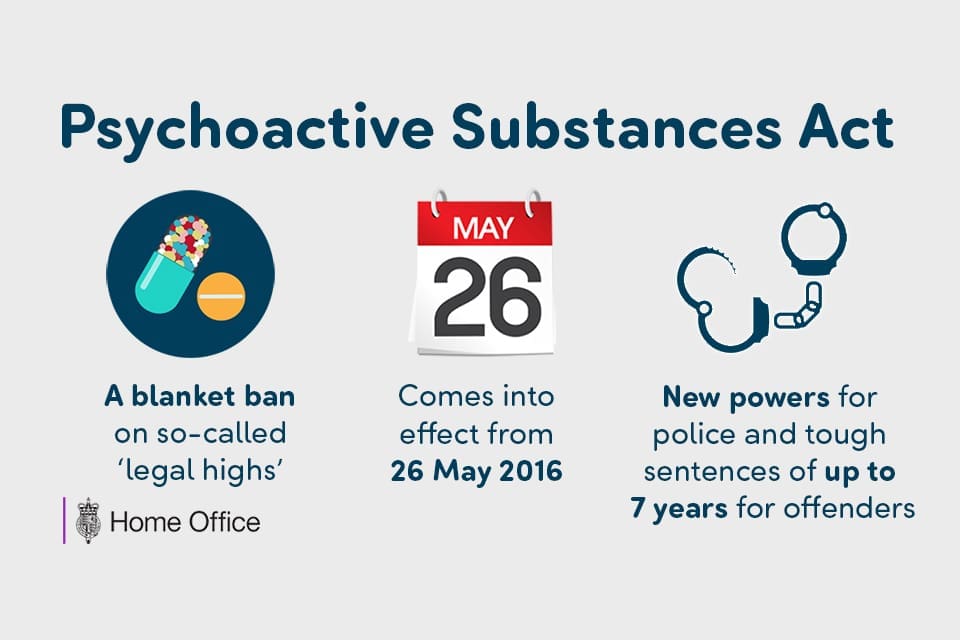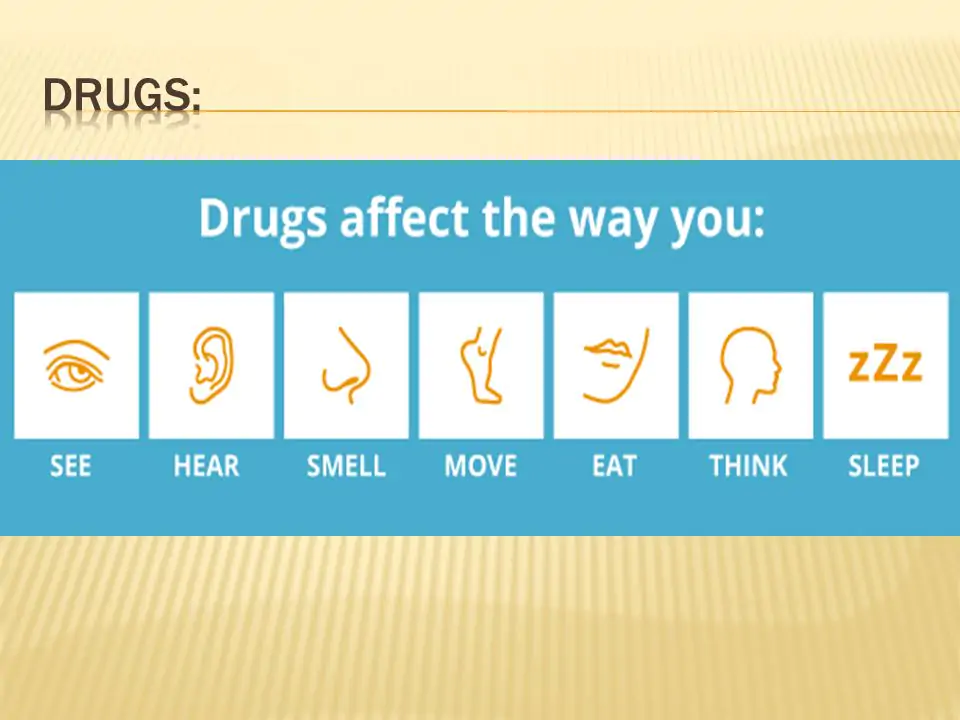-
Call Us: 0330 111 2015


Jump to a section ▼
› Introduction
› The effects of drugs on your body vs. others
› The effects of depressant drugs on the body
› The effects of hallucinogenic drugs on the body
› The effects of drug withdrawal on the body
› The effects of drug addiction on the body
Speak with our admission team
Call now on 0330 111 2015With all drugs, there are both short term and long term effects on the body that come with many risks and dangers.
Even recreational use of a drug does not guarantee your safety. However, if you have developed a problem with a drug or drugs, it is wise to educate yourself on the possible long term implications of continuing to abuse that drug.
Here, Delamere explain the effects different types of drugs have on the body, both in the short term and in the long term for problematic drug users
Help and support for a drug abuse problem or drug addiction can be found by contacting a member of our friendly team of addiction treatment experts.

There are numerous drugs available, many of which we have separate articles on.
What is more helpful in terms of the education we are providing, is to split the drugs into their recognised groups and classifications.
The Department of Health has split drugs into 3 main groups according to the effects they have of the body’s central nervous system (CNS)
The 3 main drug classifications are:
There are also drugs that fall into an ‘others’ section. These drugs tend to be unpredictable in their effects and include psychoactive drugs that do not fit exactly into one of the above three recognised categories.
Examples of psychoactive ‘others’ drugs include:
There are also many man made drugs on the market. These are made in backstreet laboratories and dealers homes. They contain many chemicals, ingredients and different drugs.
‘Designer drugs’ are marketed to mimic the effects of commonly abused drugs. Many used to be known as ‘legal Highs’ but have now been classified under ‘The new psychoactive drugs Act’.
Prime examples of extremely addictive and deadly ‘designer drugs’ are M-Cat, Flakka and Spice.

The effects of these new psychoactive drugs are incredibly unpredictable and dangerous. Many of them contain potentially lethal substances including rat poison and household chemicals.
There is also a further sub classification for dissociative anaesthetic drugs. Drugs that are primarily used for sedation but possess painkilling properties and dissociative effects – ketamine being an example (2)
How drugs affect your body could be completely different to another person taking the same drug and same dosage. This is due to a number of different factors that are personal to you and your genetic makeup.

Many drugs will also cross over as having properties or effects of another group, depending on how they are used.
For instance, alcohol is the most commonly abused depressant drug but when taking in large quantities it can have hallucinogenic effects, altering a person’s perception. Another example would be opiates which are depressant narcotic drugs but certain individuals will feel stimulant like effects.
Tolerance and dependence to a drug also alters a drug’s effects on the body as does abusing a drug, taking excessive amounts of a drug, mixing it with alcohol, another drug, or prescription medication.
Because everybody is individual it is impossible to predict exactly what effects a drug will have on a person.
We can therefore only provide a guideline of common effects commonly abused drugs have on the body.
Depressant drugs have the effect of slowing down the body and brain, they suppress and impair its function.
Depressant drugs work by increasing the activity of the neurotransmitter known as GABA. By increasing the amount of GABA activity, brain activity is reduced. This produces feelings of relaxation and calmness. (4)
Depressant drugs that are commonly abused include :
The short term effects of depressant drugs on the body (Xanax, benzodiazepines, opiates, gabapentinoids) include:
The long term effects of depressant drugs on the body ( sedatives, opioids, benzos) include:
 Detox safely in our medical facility
Detox safely in our medical facility
 Free collection
Free collection Future-proof
Future-proofHallucinogenic drugs are drugs that have psychoactive properties. Whilst they mainly affect the brain in its perception of time, space, taste, touch, hearing and vision, they also have effects on the body.
Hallucinogenic drugs mainly work on the prefrontal cortex part of the brain which is responsible for processing information as well as cognition and perception (6)
Hallucinogenic drugs that are commonly abused include:
The short term effects of hallucinogenic drugs on the body include:
Long term effects of hallucinogenic drugs on the body include:
Depending on the drug that the body has become dependent on will dictate the withdrawal symptoms a person suffers.
Withdrawal effects of drugs are usually the opposite of its pharmacological effects.
For example, withdrawing from a depressant drug (such as alcohol or a benzodiazepine) a person will experience a number of physical and psychological effects resulting from the brain overstimulating the central nervous system.
Drug withdrawal effects are caused by the brain transitioning as it tries to adjust to being without the drug or adapting to a lesser dosage.
Naturally the brain will crave more of the drug and this (together with other unpleasant effects of drug withdrawal) can lead a person to relapse or continue to use rather than going through the process of drug detoxification.
Effects of drug withdrawal on the body include:
If you are dependent on a drug and want to stop, a full medical drug detox is clinically recommended as the safest and most successful way.
You can find out more about our bespoke drug detoxes here at Delamere by calling and speaking to a member of our team.
Drug addiction is at the most extreme end of the spectrum of substance misuse disorders and is a deadly condition.
By the time the body develops addiction to a drug the brain will have rewired its pathways and suffered irreparable damage.
Whilst drug addiction is recognised as an incurable, chronic brain disease, it can be successfully arrested through medical detoxification. Continued abstinence can be maintained through undergoing rehabilitation and applying a programme of recovery.
Untreated addiction only ever gets progressively worse due to the tolerance and dependence aspect. The brain becomes more damaged through excessive exposure to drugs and addiction associated behaviours become more ingrained (8)
The effects of drugs on the body also become progressively worse, eventually affecting every organ in the body and sometimes causing irreparable and life threatening damage and disease.
If you or someone you love suffers from drug abuse or addiction, we cannot stress enough how important undertaking professional treatment is.
A person suffering from drug addiction cannot simply ‘think’ their way better. This is due to the profound changes that occur in the body and the brain
Thankfully, we at Delamere have the facilities, knowledge and expertise to fully treat any kind of drug addiction comprehensively and successfully.
If you or a loved one need help for a drug problem, please call or message us. We are dedicated and passionate about helping save the lives of those that suffer from addiction and are waiting to take your call.
References
Start your recovery journey by calling our admissions team today.
Confidential. Straightforward. Friendly.